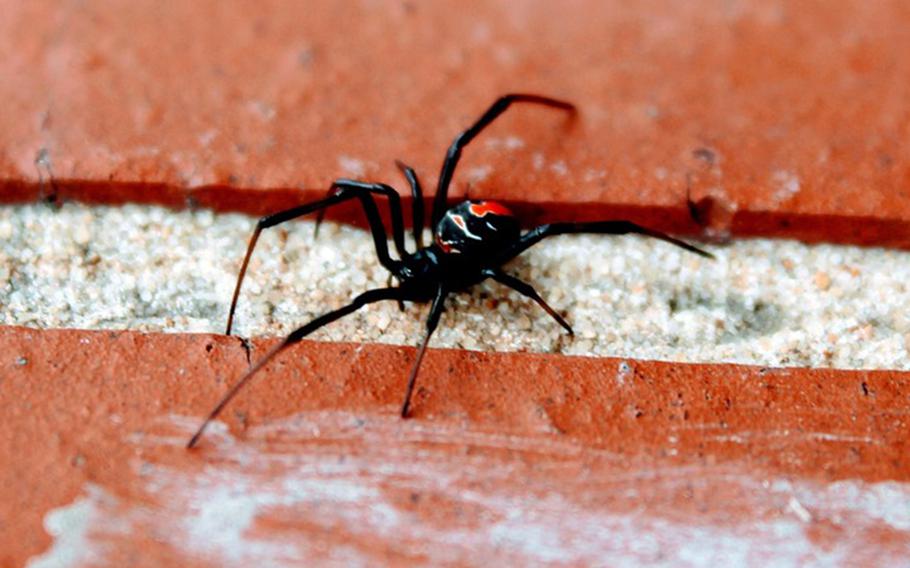Marine Corps
Spider count drops at Marine base in Japan with 279 venomous pests exterminated
Stars and Stripes June 4, 2025

MARINE CORPS AIR STATION IWAKUNI, Japan — Marines at this base south of Hiroshima exterminated 279 venomous spiders over a recent three-month period, according to a statement from Yamaguchi prefecture.
Between Jan. 22 and April 21, MCAS Iwakuni officials reported killing 62 black widows, 13 brown widows and 204 redback spiders — both mature and immature — to the prefecture.
That total, reported in mid-May, marks a significant drop from the 827 venomous spiders exterminated in the previous quarter, though only a slight decrease from the 321 killed during the same period past year.
The base reports extermination figures quarterly to both Yamaguchi prefecture and Iwakuni city. Local officials were first notified of venomous spider activity on the installation in 2000.
No new locations on base were affected this quarter, but redback spiders were found and exterminated at the Atago Sports Complex in April, according to the prefecture’s statement. The off-base facility is shared by the city and MCAS Iwakuni.
The base declined a request to interview individuals involved in pest extermination, but said “MCAS Iwakuni values the safety of its residents and remains in compliance with all relevant environmental policies with regard to poisonous spiders on the installation,” according to a statement emailed Monday by 2nd Lt. Justin Weinstein, a base spokesman.
Native to Australia, redback spiders were first discovered in Japan in 1995, according to ABC News Australia. Black and brown widows were first reported in the Iwakuni area around 2000. All three are considered dangerous due to a neurotoxin in their venom that can cause severe pain, vomiting, muscle rigidity, and other symptoms depending on the amount of venom and a person’s sensitivity.
To prevent the spiders from spreading, MCAS Iwakuni in 2004 began constructing a 3,052-yard-long, 20-inch-tall barrier made from polycarbonate panels, which are difficult for spiders to climb. The project cost approximately $862,790.
Venomous spiders have also been found off base. Last year, 122 were exterminated in Iwakuni city, according to city data. Most recently, a redback spider was discovered in May at a high school in Hirata town, a city environmental official said by phone Wednesday.
The city’s website urges people not to touch unfamiliar spiders with bare hands and recommends using pyrethroid-based insecticides, stomping them with shoes, or pouring boiling water to exterminate them.
If bitten, people are advised to wash the area and seek medical help immediately. If possible, they should bring the dead spider to the hospital for identification.